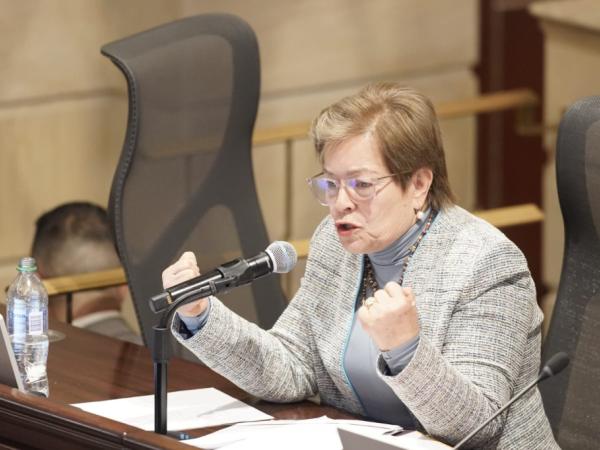The plenary session of the House of Representatives the discussion of labor reform continuesa project whose second debate was expected to be approved during the first week of October, but which has already completed six sessions of talks.
(Read more: Financing law: these are the tax incentives proposed by the project)
This Wednesday’s session began in the afternoon: after 3:10 pm, the plenary session approved “unanimously the agenda and prepared to resume the discussion of the 13 missing articles”as commented by the representative to the Chamber and speaker of the project, María Fernanda Carrascal, on her account on the social network X.
Before 6 pm, and after almost three hours of discussion, it was decided to eliminate, with 82 votes in favor, Articles 31, 32 and 33 of the labor reform.
These points referred to measures for the formalization of farm workers.
Article 31 regulated the agricultural employment contract and proposed that it existed when the worker worked “in the execution of tasks typical of agricultural activity throughout the primary production chain, without prejudice to their recognition as a peasant person” and that contemplated those permanent, transitory and seasonal activities “by virtue of productive or seasonal cycles, continuous or discontinuous.”
Labor reform debate
Sergio Acero / EL TIEMPO
(More news: Colombian agricultural exports register sustained growth)
The 32nd spoke about the agricultural day and stipulated that an article be added to Title V Chapter I of the Substantive Labor Code to create this modality and “remunerate agricultural contracts.”
And the 33rd was intended to guarantee housing, with prior agreement on special rights, for rural workers. “who lives on the exploitation property with his family, within the framework of the real possibilities of the employer and the rural area.”
(More news: La Dian opens a new call for public employment: there are 1,100 vacancies)
Other articles discussed
During the session, the plenary voted against the elimination of articles 22, 49 and 67. In that order, these sections refer to apprenticeship contracts, paternity leave and the prohibition of union contracts.
This last point was also endorsed by the legislators with 81 votes in favor. According to Carrascal, eliminating these types of agreements seeks to protect the rights of workers, as well as strengthen union work.
Subsequently, All three received approval from the House.

Labor reform process in the House of Representatives.
Courtesy – API
Other approved articles include 23 and 52. In particular, these sections, respectively, address the monetization of the learning fee and the guarantee of access to opportunities for victims of the armed conflict.
For its part, Among the points of the articles that failed to pass the test is 50. The article, which talks about maternity and paternity leave for same-sex adoptive couples, fell with 68 no votes.
So far, of the 13 remaining articles of the bill, nine have been discussed. Of these, five were approved and four eliminated.
PORTFOLIO

















